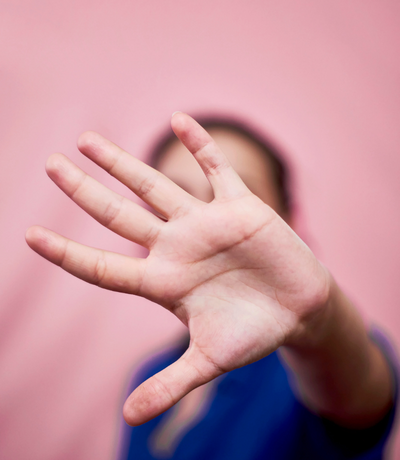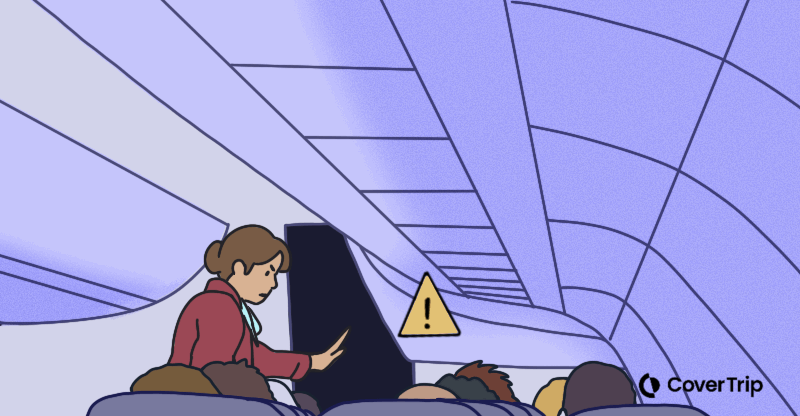Protecting yourself from in-flight sexual assault
14 October 2022
Trigger warning: This article discusses sexual assault. It may be triggering to readers with similar experiences. Please consider skipping it to practice self-care.
Compared to what is considered a typical year, 2021 resulted in a tenfold spike in complaints regarding unruly and dangerous behavior. Some of the reported incidents have been particularly newsworthy:
- Three women beat, kicked, and punched an airline security officer (they’ve since been indicted)
- One passenger allegedly punched a flight attendant in the back of the head
- Passenger AirDrops naked pictures to unsuspecting fellow passengers
Despite these noteworthy incidents, there’s also been a rise in another type of offense. It’s less talked about, but no less consequential for its victims. That offense is in-flight sexual assault.
No specific victim profile exists; the FBI has seen cases reported from victims of all ages (some as young as eight years old). Because flights often last only a few hours, assailants condense their grooming process and take advantage of close quarters and seat positions to:
- Gain trust
- Fill a need
- Isolate
- Initiate sexual contact
Sexual assault on planes typically takes the form of unwanted touching or groping, but it can also take the form of displaying obscene photography or video (often on a mobile device or tablet). Once the victim is aware of the activity, the offender assumes they will be quiet out of embarrassment or fear.
To protect yourself and your loved ones from in-flight sexual assault, here are the recommendations.

Reconsider your favorite seat
When you’re picking your seat, book an aisle seat instead of one that is slightly more hidden from other people.
Pro tip: If you’re arranging a flight for a child to fly unaccompanied, reserve an aisle seat so that flight attendants can keep a closer eye on the child.
Don’t knock yourself out
Some travelers, depending on the length of the flight, are accustomed to relying on alcohol, relaxation, or sleeping medicines to calm their nerves or get some sleep. The problem with this practice is that the traveler may not stay aware of their surroundings.
Alternatively, you might consider a lower dose of medication or a calming alternative that helps you feel relaxed, but also aware.
Create a barrier between you and your seatmates
No matter how initially polite your row partner or partners may seem, there’s no harm in putting down the armrest.
Wrapping a travel blanket around your waist and legs is another good idea. If you have access to a pillow, consider placing that between you and them as well.
You’ll be warm and cozy and also have a physical barrier between you and the strangers sitting next to you.
Be careful what info you share
Because the standard process sexual offenders use includes ‘filling a need’, it’s important not to share personal details that could give them an opening. A detail such as a recent loss, a job change, or a breakup are all open invitations to engage and get acquainted.
It’s best not to engage in personal talk with strangers on a plane. It’s OK to tighten down normal friendly behavior to avoid sexual assault.
Pro tip: Earbuds and headphones, and opening a book or tablet, are useful ways to shut down unwanted conversations.
Respond immediately and forcefully to unwanted advances
According to the FBI, perpetrators of sexual assault will often test their intended victim — sometimes more than once. These tests are intended to see how you’ll react or if you’ll wake up. They may consist of seemingly casual contact like brushing up against your arm, leg, etc.
If such behavior occurs, calmly and confidently tell the person not to touch you – here are some examples:
- Stop touching me – that’s not OK!
- Do not touch me again!
- I told you to keep your hands off me – stop right now!
Saying it loudly will alert others in the surrounding area and they may keep an eye out as well.
Pro tip: It’s important not to give them the benefit of the doubt. Trust your gut: their first attempt is your first warning that their intentions may not be good.
If an incident occurs – report immediately
If an incident occurs, press the flight attendant call button, respond forcefully, stand up, and leave your seat if you can.
On any flight, the flight attendants and crew have legal authority. They are not police officers, but they can manage the situation, put the offender on notice, and even alert law enforcement.
In most cases, the flight attendants will try to separate you so that you’re not sitting together anymore.
According to the FBI, when assaults are immediately reported to the flight crew, law enforcement can meet the plane and take the offender into custody.
Related topics
Damian Tysdal is the founder of CoverTrip, and is a licensed agent for travel insurance (MA 1883287). He believes travel insurance should be easier to understand, and started the first travel insurance blog in 2006.
